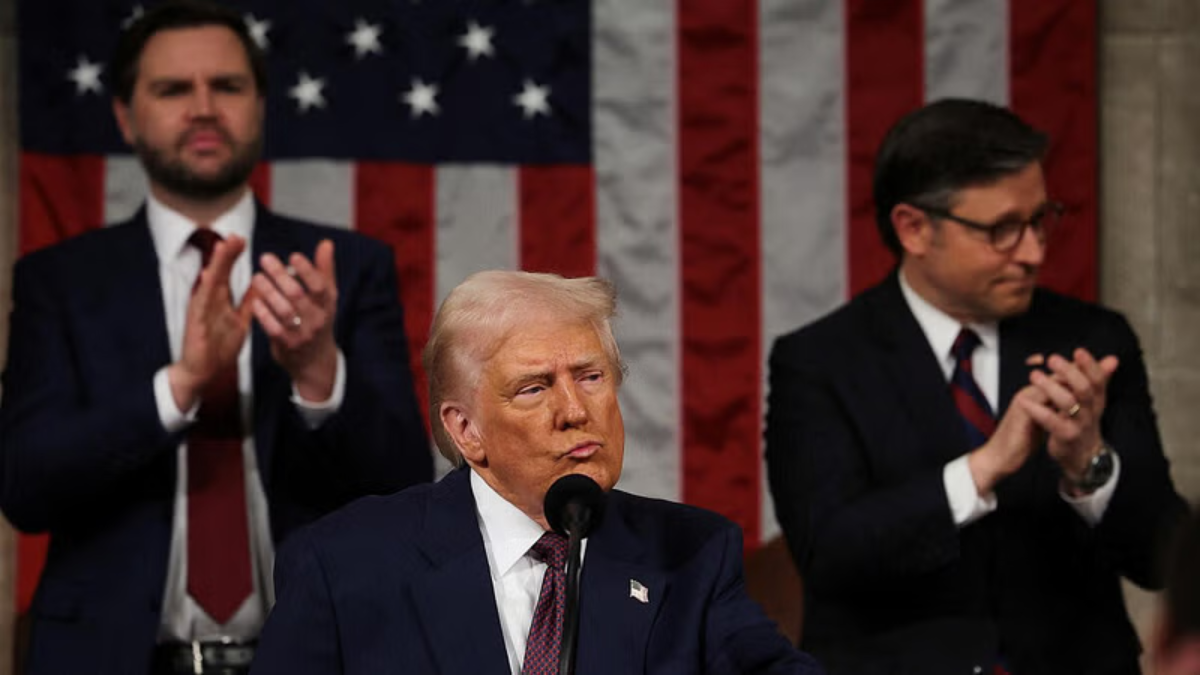
WASHINGTON, March 4 – U.S. President Donald Trump announced on Tuesday that Japan, South Korea, and other nations are interested in partnering with the United States on a “gigantic” natural gas pipeline in Alaska, claiming they would invest “trillions of dollars each.” During his address to the U.S. Congress, Trump described the pipeline as one of the largest in the world.
“Japan, South Korea, and other nations want to be our partner, with investments of trillions of dollars each,” he said. South Korea’s industry ministry confirmed that Minister Ahn Duk-Geun discussed the project with U.S. officials during his recent visit to Washington, though no specific details have been finalized.
“We will actively engage in discussions with the United States moving forward as it is a matter of mutual interest of the two countries,” a ministry spokesperson said following Trump’s remarks.
Earlier on Tuesday, Ahn stated that the U.S. had inquired whether South Korea and other countries were interested in participating in the Alaskan liquefied natural gas project. He added that Seoul and Washington had agreed to form a working-level group to discuss the pipeline, energy, shipbuilding, tariffs, and non-tariff barriers.
Ahn’s visit to Washington also aimed to seek exemptions from Trump administration tariffs, which could significantly impact South Korea’s export-driven economy. Japanese Prime Minister Shigeru Ishiba commented on Wednesday that increasing imports of American gas, bioethanol, and ammonia would “meet the national interests of both Japan and the U.S.” by stabilizing Japan’s energy supply and reducing the U.S. trade deficit. He had made similar remarks after meeting Trump last month.
“We will carefully examine its technical possibilities and profitability” from the perspective of whether it would contribute to Japan’s interest, Ishiba told a parliament session.
In his congressional address, Trump emphasized his tariff plans, stating it was now the U.S.’s turn to impose tariffs on other countries as they had done to the U.S. He announced reciprocal tariffs would take effect on April 2, criticizing South Korea’s average tariff as four times higher than that of the U.S., despite American military and other assistance.
On Sunday, Doug Burgum, co-chair of the White House National Energy Dominance Council, highlighted the potential benefits of the 800-mile LNG pipeline, stating it would enable the U.S. to sell energy to allies and “raise money for the U.S. Treasury.”
While the Alaska LNG project faces cost and logistical challenges, Japan, South Korea, Taiwan, and others are considering the broader idea of increasing U.S. gas imports. Japanese officials have not committed to participating in the pipeline but have agreed to explore the matter, according to sources familiar with the discussions.
Japan’s trade minister is scheduled to visit Washington this month to seek tariff exemptions and discuss plans to purchase more U.S. LNG.
Get more News Headlines On Our Social Platforms And Do Follow.




